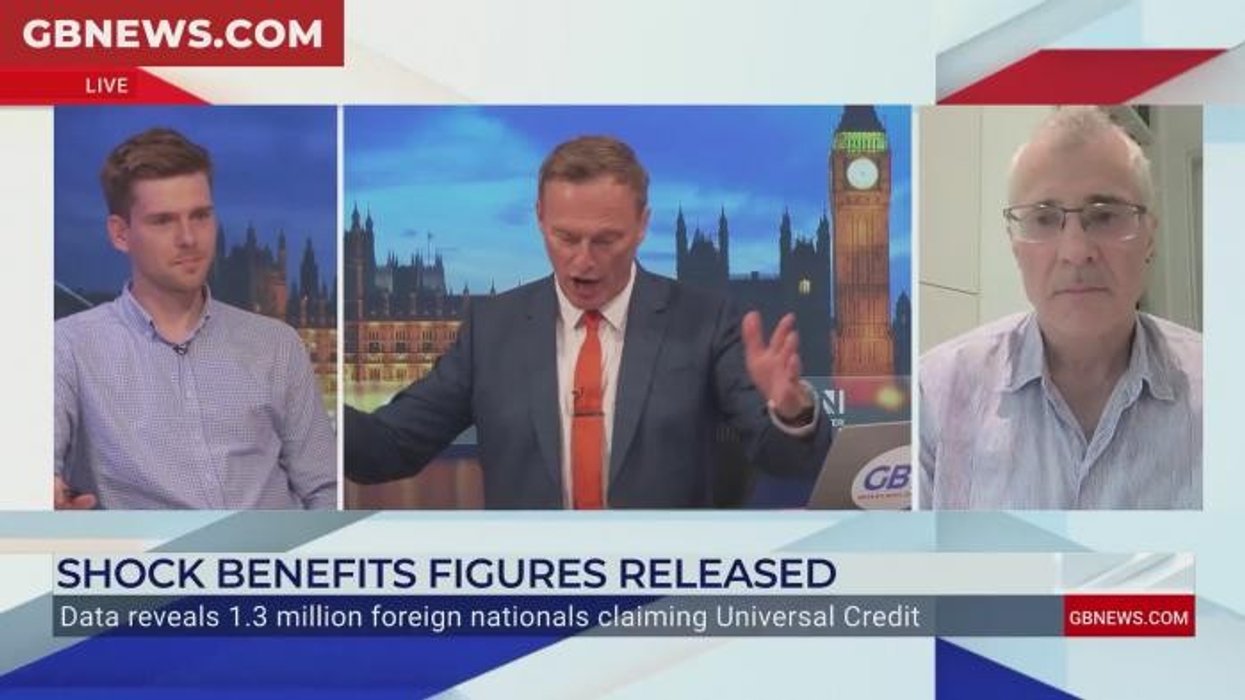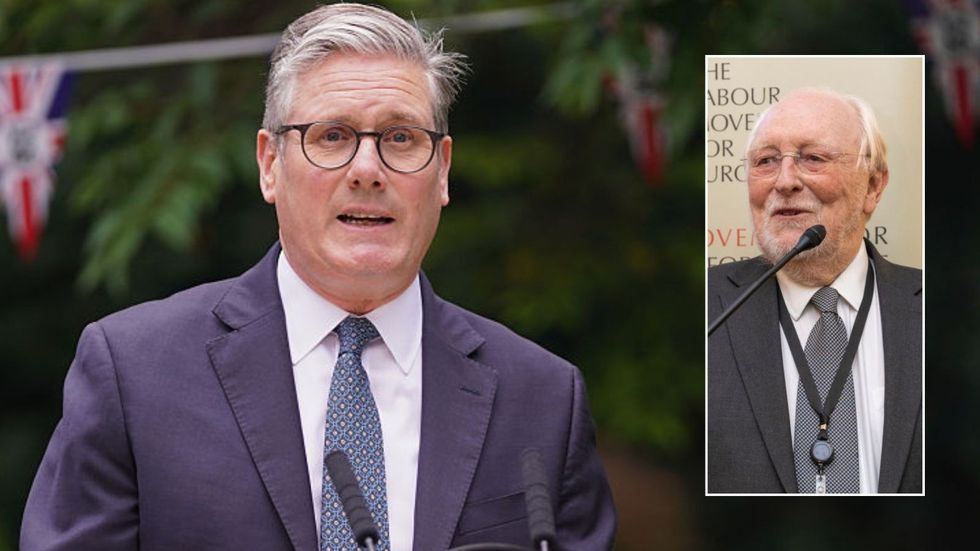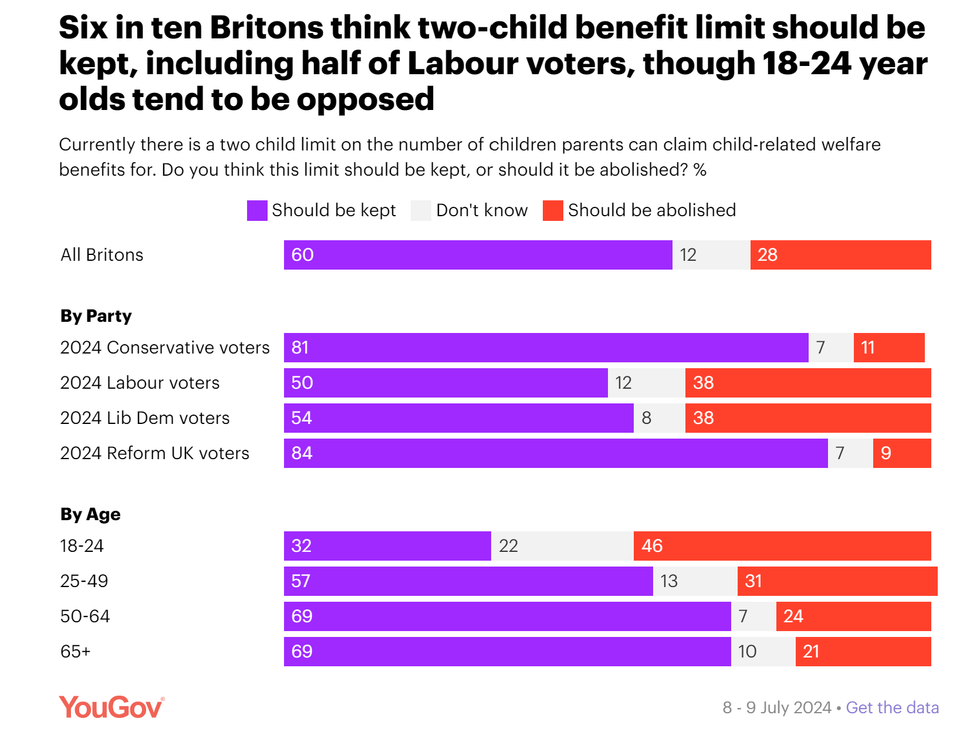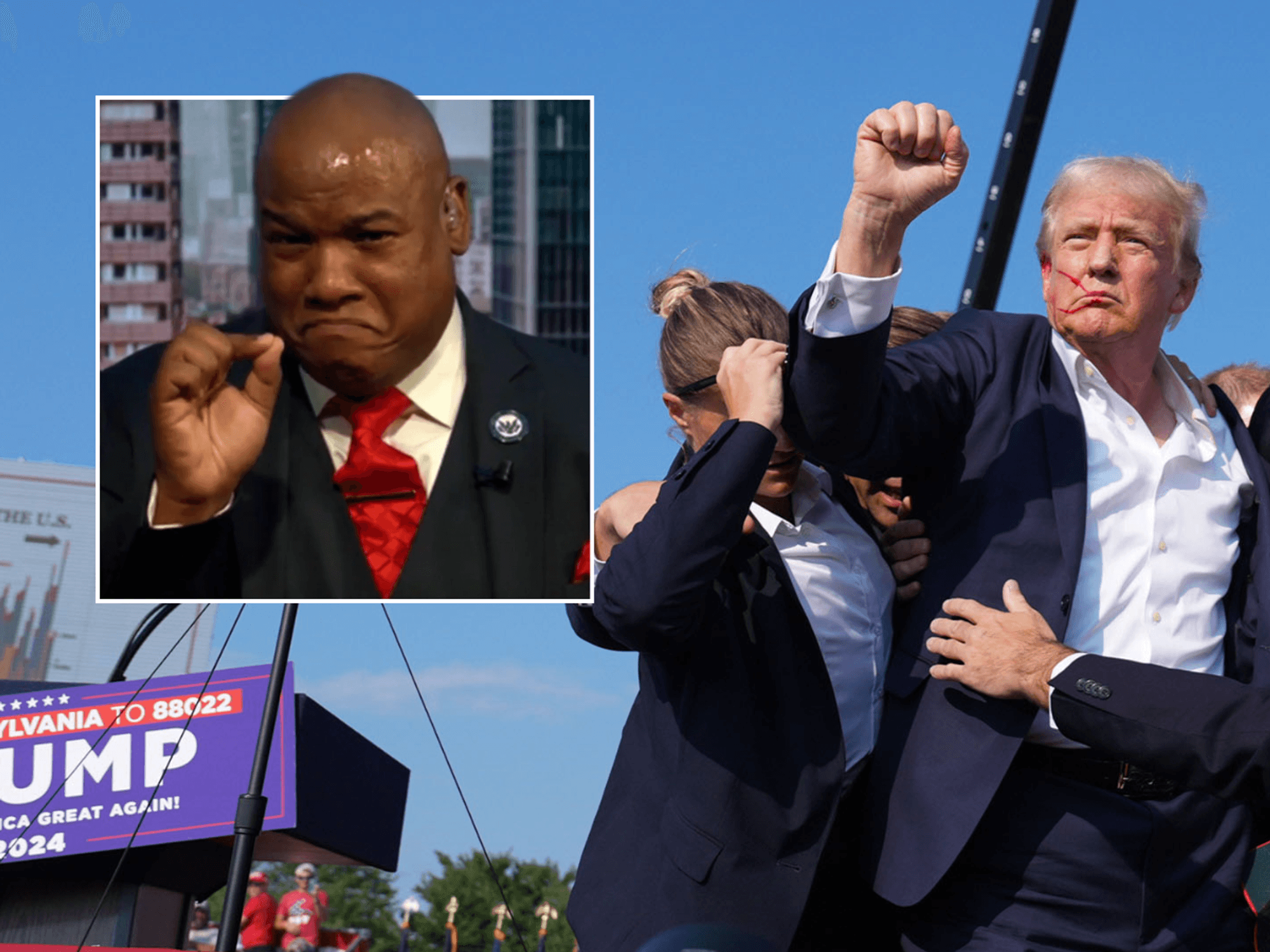'Scrap the benefit cap!' Keir Starmer urged to axe DWP two-child policy on Universal Credit by ex-Labour boss

Huge row erupts on GB News over migrants on benefits |
GB NEWS

Under the two-child benefit cap, Universal Credit payments are restricted for certain households
Don't Miss
Most Read
Latest
The Labour Government is avoiding calls to scrap the two-child benefit cap despite recent interventions from former ministers to axe the controversial policy.
Lord Neil Kinnock has urged Prime Minister Keir Starmer to overhaul the restriction on benefit payments from the Department for Work and Pensions (DWP).
Under the policy, the amount a household can claim from Universal Credit is restricted if the family claiming support has more than two children.
Over the weekend, the former Labour leader suggested the Government to move towards abolishing the restriction that prevents parents claiming benefits for more than two children.
**ARE YOU READING THIS ON OUR APP? DOWNLOAD NOW FOR THE BEST GB NEWS EXPERIENCE**

An ex-Labour leader is urging the PM to axe the DWP benefit cap on Universal Credit payments
|GETTY
"I would want them to do it. They may not be able to do it all at once, but I really want them to move in that direction," he said.
He highlighted that scrapping the policy could reduce child poverty significantly, stating: "Because the figures are that, if that did occur, it would mean that about 600,000 kids, fewer, are in poverty."
The Labour peer also advocated for implementing a wealth tax on Britain's richest citizens to fund such measures, describing it as "the economics of Robin Hood" whilst maintaining there was "nothing terribly bad about that".
Care Minister Stephen Kinnock sidestepped uncomfortable queries about his father's weekend plea for Labour to eliminate the two-child benefit cap earlier this morning.
Do you have a money story you’d like to share? Get in touch by emailing money@gbnews.uk.
 The results of the survey show that 60 per cent of Britons think the two-child benefit limit should be kept | YouGov
The results of the survey show that 60 per cent of Britons think the two-child benefit limit should be kept | YouGovWhen pressed about whether discussions were underway regarding the controversial cap, Kinnock acknowledged that conversations were "ongoing" but firmly declined to anticipate any Budget announcements.
"I'm not going to speculate on the Budget, as it's coming forward in October," he stated during a Sky News appearance, adding that removing the cap "is not government policy" at present.
During his appearance on BBC Breakfast, presenter Jon Kay repeatedly pressed him about whether he agreed with his father's position.
"You've invited me onto this programme as a Government minister and I speak now on behalf of the Government," Kinnock responded when asked to choose between his father's stance and the Prime Minister's.
MEMBERSHIP:
- Labour's stronghold crumbles in double election blow as Keir Starmer rocked by shock result - but who won?
- Bournemouth is just the beginning. Vigilante groups are coming to a town near you - Renee Hoenderkamp
- Rachel Reeves just gifted Richard Tice her chancellorship in 24 hours. Inheritance tax does pay - Kelvin MacKenzie
- POLL OF THE DAY: Is it in Britain's interests to show solidarity with Ukraine? VOTE NOW
- Want to stop Britain from becoming one big Bradford? The answer lies 85 miles off the coast - Colin Brazier
He added: "I am very clear that any changes to our fiscal policy are a matter for the Chancellor and only the Chancellor."
Keir Starmer has consistently resisted calls to remove the cap, citing the financial burden such a move would impose on the Treasury.
LATEST DEVELOPMENTS:

Rachel Reeves has not responded to calls to scrap the benefit cap
| POOLThe policy has drawn criticism from poverty campaigners who argue it has trapped millions of children in hardship, with official statistics earlier this year revealing 4.5 million children were living in poverty.
Despite internal pressure and Lord Kinnock's latest intervention, the government maintains that fiscal constraints prevent immediate action on the issue.
The Chancellor faces mounting economic pressures ahead of October's fiscal statement, with the National Institute of Economic and Social Research warning of a £50billion shortfall in public finances.
The think tank cited sluggish growth, labour market weakness and Labour's reversal on welfare reductions as factors deepening the fiscal crisis.
More From GB News










